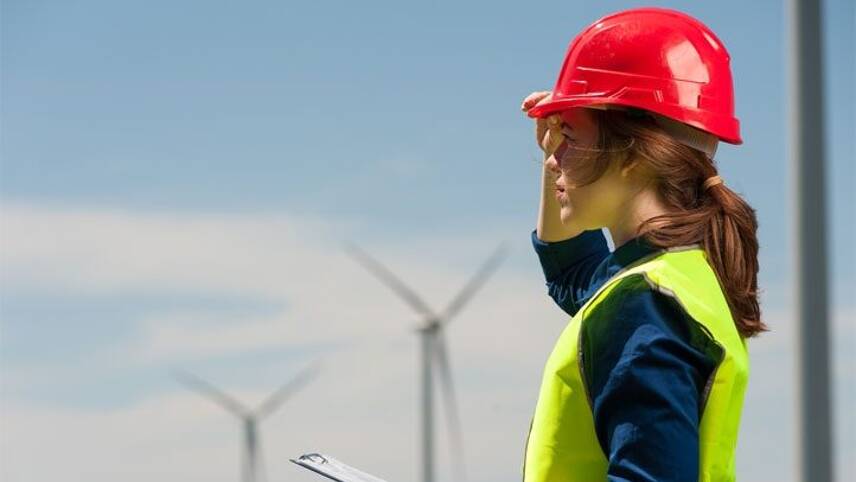Register for free and continue reading
Join our growing army of changemakers and get unlimited access to our premium content

The scenario would also create an additional 279,000 UK jobs, bringing the total clean energy jobs in the country to more than 650,000 clean energy jobs
The UK has the opportunity to more than double the economic benefits that could be generated by reaching the net-zero target by 2050. A new report has claimed that introducing policies that address current clean technology barriers that push the nation beyond net-zero would deliver £70bn in annual benefits, compared to £36bn under the net-zero transition.
The report, produced by former government economist Chris Walker for the UK Business Council for Sustainable Development, in partnership with Prologis UK and Inspired Plc, states that a “beyond net-zero” transition would offer economic opportunities “unseen since the discovery of oil and gas reserves in the North Sea in the 1970s”.
The report says: “The UK’s strong competitive advantages in clean energy generation mean it is uniquely well positioned in the race to net-zero which can deliver significant and sustained economic growth, raised productivity and increased exports.
“Other advanced economies will undertake similar journeys to the UK at the same time. For the UK to cement its leadership in tackling this challenge, crucial public policy decisions need to be taken, backed up by investment from private sector organisations to ensure that the UK makes and captures the necessary investment to capitalise on its strengths.”
Under the reports, beyond net-zero scenario, the UK would deliver economic benefits of £70.3bn a year by 2050, which does not include the added social value of reduced emissions and improved health. This would be more than double the economic benefits of pursuing net-zero as the end limit.
This beyond net-zero transition includes an additional £36.4bn of Gross Valued Added (GVA) delivered by clean energy generation and a £17.0bn boost to the UK’s trade balance. A further £14.7bn is derived from lower energy prices.
The scenario would also create an additional 279,000 UK jobs, bringing the total clean energy jobs in the country to more than 650,000 clean energy jobs. The transition would also enable the UK to generate huge amounts of clean energy, turning the nation from a net importer to an exporter, worth £17bn annually.
Delivering this transformation would require some major transformations and new enabling policies.
The report notes that the National Grid would need to be upgraded to account for a massive uptake in energy storage that would need to capture the tens of Terawatts of renewable power lost each year. It also recommends a retrofit programme for old homes, offices and commercial properties.
The report also welcomes the Government’s plans to host at least 10GW of ‘low-carbon’ hydrogen production capacity by 2030. At least half of this will need to be ‘green’ hydrogen capacity. Green hydrogen is produced by electrolysing water at facilities powered using 100% renewable electricity.
Other policy interventions include creating an annual quota of interest-free “retrofit loans” from the Government to help owner-occupier households and commercial landlords, delivering a five-fold increase in solar capacity by 2035, leveraging funding for alternative storage solutions to hydrogen and batteries and regulating an obligation on wholesale or retail gas suppliers to blend all gas supplies with a residual amount of hydrogen.
edie’s Net-Zero Awards are open
edie is proud to announce the launch of the Net-Zero Awards, specially created to recognise and reward the individuals and organisations that are spearheading the transition towards a net-zero carbon economy.
Brought to you by the team behind the long-established and hugely popular edie Awards, this brand-new sister awards scheme offers a unique opportunity to empower teams, inspire stakeholders and ultimately accelerate decarbonisation across all industries.
KEY DETAILS: Entries for the Net-Zero Awards 2023 are now open. The full list of 16 categories and criteria can be viewed here. The entry deadline is Friday 14 July, with the Awards ceremony taking place on the evening of Wednesday 15 November in London.
Click here for more information or to enter.


Please login or Register to leave a comment.